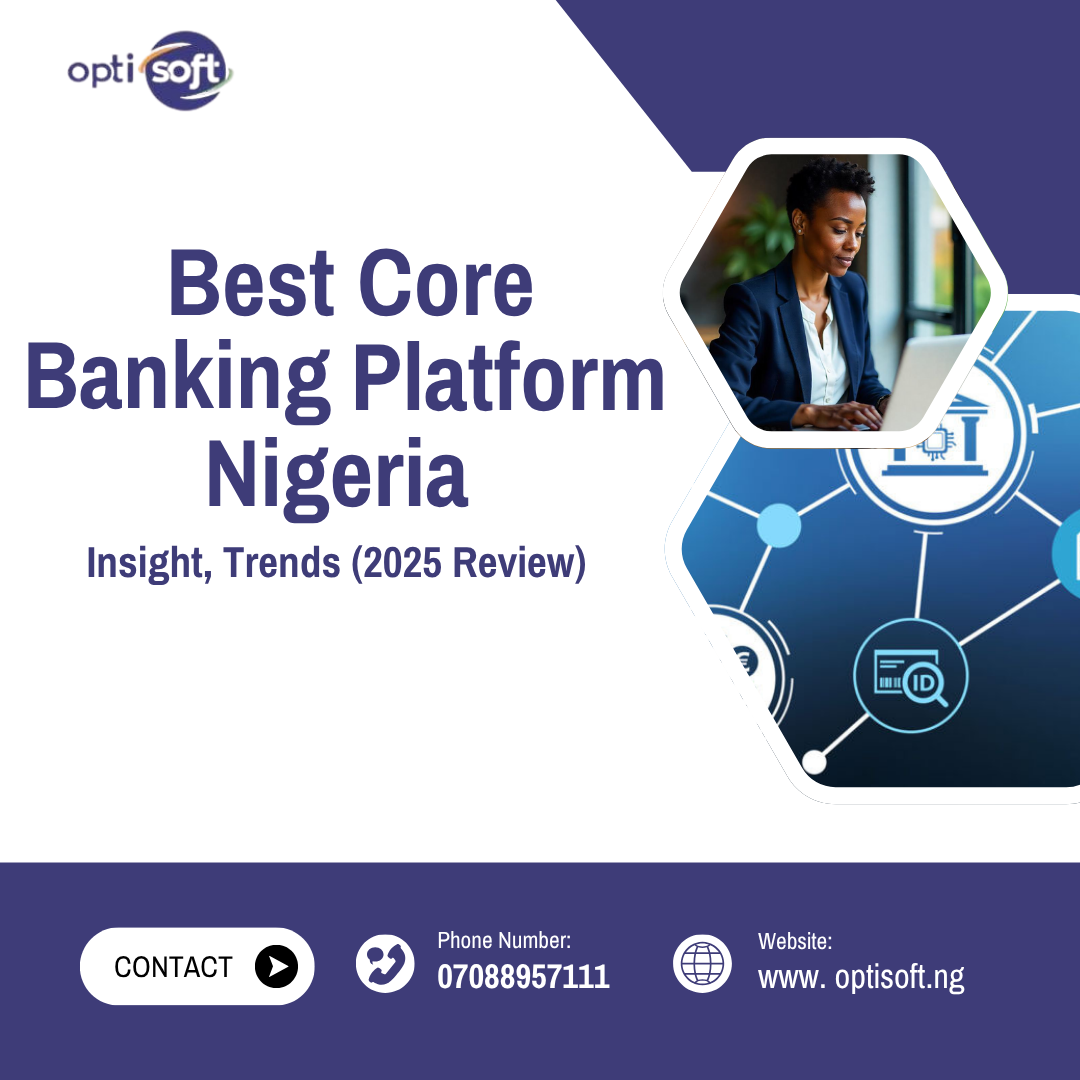
Introduction to Core Banking Systems
Despite the rapid growth of digital banking in Nigeria, many financial institutions — especially Microfinance Banks (MFBs) and informal lenders — still rely on manual processes or disconnected software tools. While Core Banking Systems (CBS) have enabled inter-branch access and real-time processing, the real challenge now lies in how these platforms handle Loan Origination, customer data, and compliance at scale.
In India, for instance, a 2015 study published in the Mediterranean Journal of Social Sciences highlighted how fragmented LOS systems across banks resulted in multiple loans being issued to the same borrower — often without proper credit checks — fueling a wave of Non-Performing Assets (NPAs). This issue serves as a cautionary tale for emerging markets like Nigeria, where financial inclusion is expanding faster than the infrastructure supporting it.
As we step into 2025, the Nigerian financial sector is at a crossroads. This article explores the top-performing core banking platforms in Nigeria, their features, target markets, and how platforms like Ezone Finance are stepping in to fill a crucial gap — offering lightweight, affordable, and unified systems built specifically for growing MFIs and MFBs.
What Is a Core Banking Platform?
A Core Banking System (CBS) is a software platform that allows banks to perform essential banking services such as:
- Opening accounts
- Managing customer data
- Loan creation & disbursement
- Deposit tracking
- Interest and penalty calculations
- Regulatory reporting
In a modern CBS, all branches of a bank access a centralized server, enabling real-time updates and “anywhere, anytime” banking.
Read more: How to Migrate from Excel to Digital Lending in 7 Days
Core Banking Challenges in Nigeria’s MFI Sector
Many MFIs and MFBs face similar constraints:
- Manual loan processing via Excel or paper
- Inability to track real-time performance
- Limited CBN-compliance tools
- No integration with credit bureaus
- Scattered data across departments
A unified core banking system can bridge these gaps — but only if it’s affordable, scalable, and built for non-technical teams.
💡 This is exactly where Ezone Finance positions itself: a lightweight CBS tailored for small lenders ready to go digital.
Top Core Banking Platforms in Nigeria
Top 5 Core Banking Platforms in Nigeria (2025 Review)
1. Ezone Finance (🏆 Best for MFBs & MFIs)
- Built specifically for grassroots lenders and MFIs
- Enables 7-day onboarding
- Supports SMS alerts, multi-branch management
- CBN-compliant reports built-in
- Easy migration from Excel
🔗 Book a Free Demo
🔹 2. Finacle by Infosys
Widely used across major African banks. Packed with features — but high cost and long onboarding time.
🔗 Visit Finacle
🔹 3. BankOne by Qore
Cloud-based and Nigerian-developed. Great for SME banks, fintechs, and cooperatives.
🔗 Visit Qore
🔹 4. Rubi by Inlaks
Designed for smaller banks and MFIs. Regional support is a strength, though integration is limited.
🔗 Visit Inlaks
- 🔹5. Temenos Transac
Best for large commercial banks. Highly customizable, but expensive and complex for smaller institutions.🔗 Visit Temenos
Emerging Trends in Core Banking by 2025
- AI & automation: Workflow automation, fraud detection; AI-powered analytics feed decision-making .
- Cloud-native microservices: Modular and agile for faster feature rollout .
- Blockchain & CBDC: Integration of eNaira and smart contracts per CBN 2025 roadmap.
- Open Banking & APIs: API-regulatory push to enable fintech collaboration .
- Cybersecurity: Encryption, MFA, data masking, biometric controls.
Nigerian Market & Regulatory Dynamics
- CBN Payments System Vision 2025: Mandates APIs, scalability, CBDC, QR/contactless deployments.
- Increased financial inclusion: Agent banking, micro‑banking, digital wallets.
- eNaira impact: Banks integrating CBDC directly into core ledgers.
Spotlight: Optisoft’s Ezone Finance Core Banking
Ezone Finance —Optisoft’s flagship—offers:
- Key Functions: NUBAN account issuance, mobile/internet banking, cash & limit control, SMS alerts.
- Designed for: Nigerian MFBs and small institutions.
- Strengths: Contextual compliance, SaaS flexibility, lower cost, local support.
- Limitations: Not suited to larger banks needing advanced modules.
- Use Case: Optisoft reports ready rapid deployment and improved operational oversight in client micro-lenders.
Conclusion
Nigeria’s core banking transformation in 2025 is marked by rapid modernization, driven by CBN initiatives, fintech competition, and evolving technologies like AI, CBDC, and open APIs. The “best” platform depends on your institution’s scale and objectives:
- MFBs: Ezone (Optisoft) aligns with local context and cost efficiency.
- Mid/large banks: Temenos, Finacle, TCS BaNCS deliver scale at higher costs.
- Retail-facing banks: CR2 enhances channel access and customer experience.
Adoption of cloud-native, AI-enabled, secure, and integrated core systems is vital. As Nigeria accelerates towards greater financial inclusion and digital currency adoption, selecting a platform that aligns with strategic goals—and regulatory demands—will define future competitiveness and service excellence.
